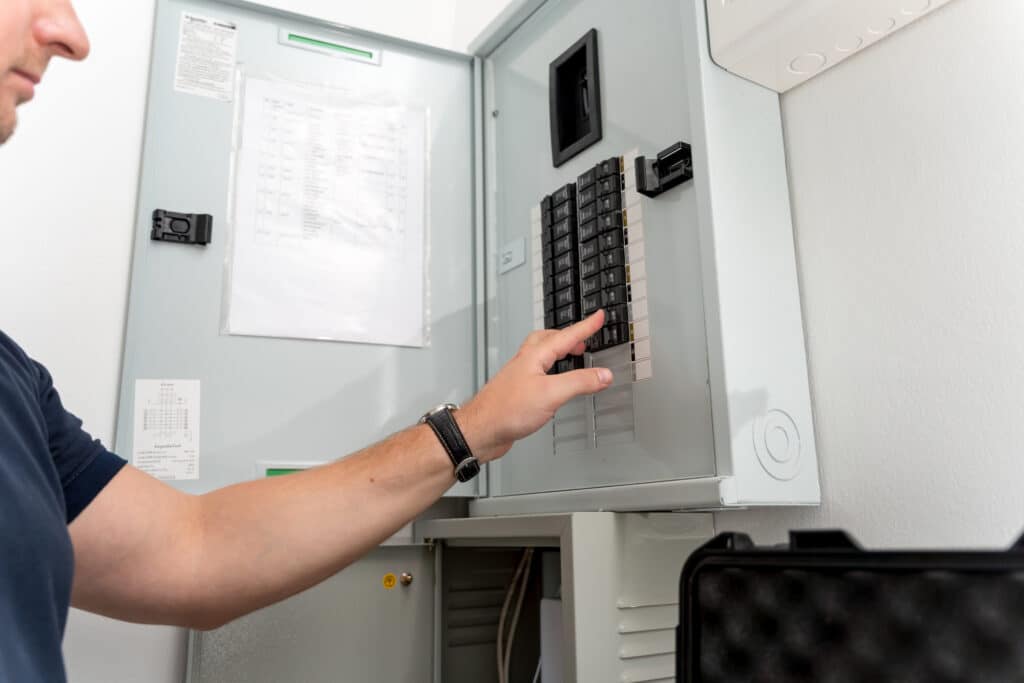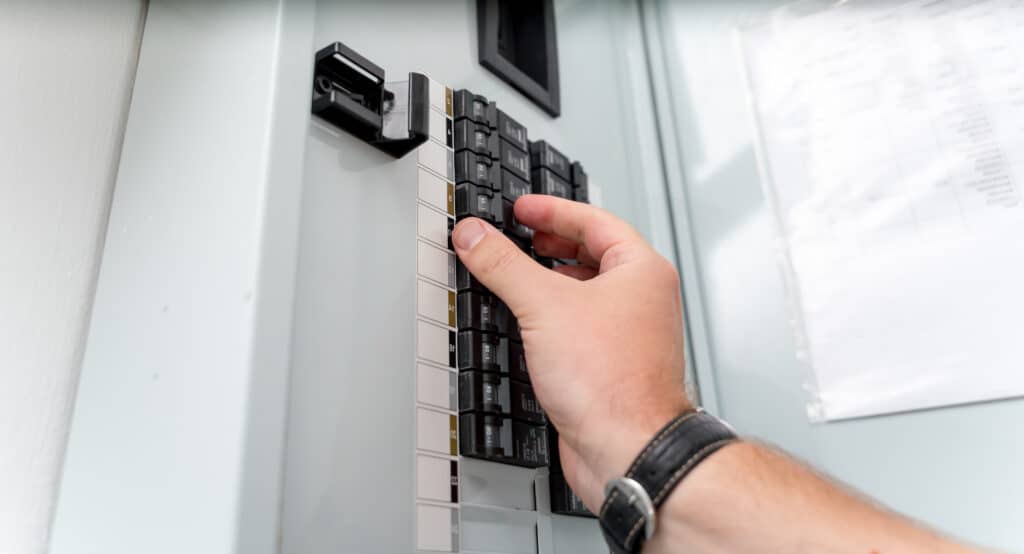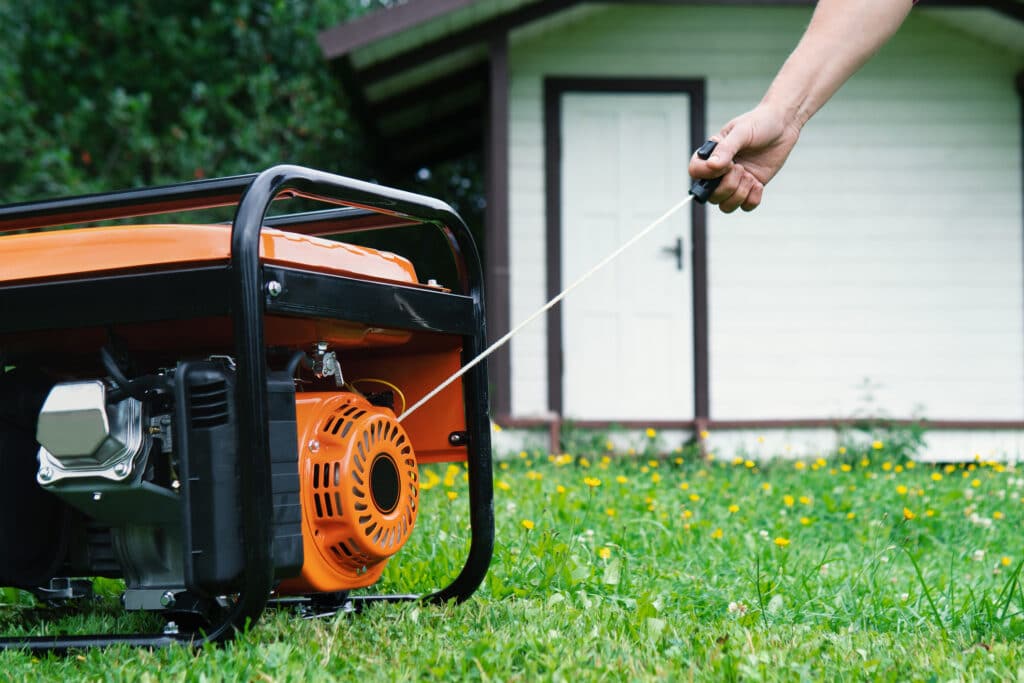Stockpiling food, water, and medical supplies isn’t the only prep work you need to do if you live in a hurricane-prone area. It’s also critical to know how to handle your utilities before, during, and after the storm. This is especially important if you have to evacuate your home at any point in time. Not managing your utilities properly could result in electricity surges, gas leaks, or even house fires. Find out when you should turn your power off during a natural disaster and learn what other actions you can take to protect your property below.
When Should You Shut Your Power Off During a Hurricane?
As a general rule of thumb, you can leave your power on before a hurricane unless you plan to evacuate or are specifically asked to shut off your power by local authorities. However, there are some actions you should take ahead of time to manage your utilities and keep your loved ones safe. Locate your circuit breaker panel and show anyone who resides with you how to turn the power off in your home. You will need to be prepared to shut your power off if you have to evacuate your home or leave for an extended period of time.
You should also be ready to power down if you start to experience any water intrusion. Never try to shut off your power if you have to stand in water to access your breaker box. Before the hurricane hits, set your refrigerator and freezer to a colder temperature to preserve your food as long as possible in the event of a power outage.
Temperatures can remain stable for approximately two days. Do not open or close your refrigerator or freezer unless absolutely necessary. Once the storm rolls in, turn off your electric ranges and your HVAC system to prevent power surges and electrical hazards.
What To Do With Your Electronics Before a Hurricane
Throughout the storm, power may fluctuate or be restored suddenly, which can damage computers, televisions, gaming systems, and small appliances. Unplug unnecessary devices and use surge protectors to safeguard your most valuable electronics. If you have time, back up your computer to prevent losing important documents. and download utility apps to monitor power conditions in your area.
Limit your phone usage and keep a portable charger with multiple USB connectors in your vehicle so you can charge your devices as needed.
What To Do With Gas and Water Utilities Before a Hurricane
Electricity isn’t the only utility you should be concerned about during hurricane season. It’s also important to know how and when to shut off your gas and water. First, it’s important to stress that you should not turn off your home’s main gas supply yourself. If you need to turn off your gas because you suspect a leak or you plan to evacuate, contact your utility company to shut off your gas supply at the meter.
When it comes to water, you may need to access the main water shut-off valve if there is a plumbing emergency or you plan to evacuate during the storm. This is usually located outside your home near the water meter, but it could also be under the kitchen or in the basement. To shut off your water supply, turn the valve until it stops. Afterward, make sure you run your sinks for a few minutes to drain the pipes completely.
In the event that you lose access to your water supply during the hurricane, it’s crucial to be prepared. Before the storm hits, fill your bathtub and sinks with clean water. Stockpile at least a three-day supply of drinking water for each person in your home.
Prepare Alternate Power Sources Before a Hurricane
If you have a standby or portable generator, make sure it has enough oil and fuel to power the essentials if necessary. Test your generator ahead of time so you know everything is in working order. If you’re unsure of how to properly operate your generator, refer to the owner’s manual and practice turning it on and off before the storm sets in. Improper use can result in carbon monoxide poisoning or electrocution, so it’s important to keep the following guidelines in mind:
- Never operate a generator indoors
- Do not plug your generator directly into your circuit box
- Keep your generator at least 15 feet away from open windows and doors
- Do not use your generator in wet conditions
- Use a 14-gauge outdoor grounded extension cord with GFCI functionality
Other alternative power sources you may want to have on hand include portable phone chargers and battery banks, hand-crank or solar chargers, and batteries.
Tips for Restoring Power After a Hurricane
Once power is restored and the hurricane has passed, there are a few extra safety precautions you should take. Spend five to ten minutes carefully inspecting your property before turning on your HVAC system and appliances. Pay special attention to areas that may have water damage or exposed electrical wires. If you experienced flooding and your outlets have been exposed to water, refrain from turning the power back on and contact a professional electrician immediately.
If you use gas to power your water heater and find that it is submerged, don’t try to ignite the pilot light. Instead, call a professional to check your water heater for corrosion. Never use electrical or gas appliances that have suffered water damage. If you evacuated during the hurricane, contact the utility companies that serve your area to temporarily pause service. They may also be able to extend payments and waive fixed fees while you’re displaced from your home.
Final Hurricane Preparation Tips and Reminders
The best time to prepare for an emergency is before it happens. Use the information we’ve shared as a guide, but make sure to also have a list of local resources saved in case you need them. Jot down phone numbers for utility companies, emergency services, friends, and family before the next big storm so you can reach out when you need to most. Keep a contact list on your fridge and in your wallet so it’s easily accessible. By taking the steps to put together a game plan today, you’ll be in much better shape for hurricane season.



